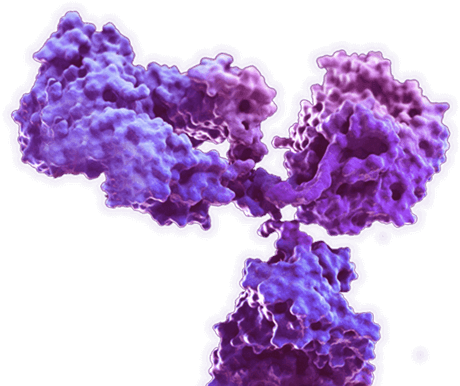Mouse Anti-Arabidopsis GAD1 Antibody (CBMOAB-33667FYC)
Cat: CBMOAB-33667FYC
Certificate of Analysis Lookup
To download a Certificate of Analysis, please enter a lot number in the search box below. Note: Certificate of Analysis not available for kit components.
Lot Number
To download a Certificate of Analysis, please enter a lot number in the search box below. Note: Certificate of Analysis not available for kit components.
Lot Number
| Size: | |
| Conjugate: | |
| Inquiry |
- Product Details
Specifications
| Host species | Mouse (Mus musculus) |
| Species Reactivity | A. thaliana (Arabidopsis thaliana) |
| Clone | MO33667FC |
| Specificity | This antibody binds to Arabidopsis GAD1. |
| Format | Liquid or Lyophilized |
| Storage | Store at 4°C: short-term (1-2weeks) Store at -20°C: long-term and future use |
| Purity | > 90% was determined by SDS-PAGE |
| Purification | Purified with Protein A or G affinity chromatography |
| Cellular Localization | Cytosol |
Application Information
| Application | WB, ELISA |
| Application Notes | ELISA: 1:1000-1:3000 Other applications are to be developed. The optimal dilution should be determined by the end user. |
Target
| Introduction | This gene encodes one of several forms of glutamic acid decarboxylase, identified as a major autoantigen in insulin-dependent diabetes. The enzyme encoded is responsible for catalyzing the production of gamma-aminobutyric acid from L-glutamic acid. A pathogenic role for this enzyme has been identified in the human pancreas since it has been identified as an autoantigen and an autoreactive T cell target in insulin-dependent diabetes. This gene may also play a role in the stiff man syndrome. Deficiency in this enzyme has been shown to lead to pyridoxine dependency with seizures. Alternative splicing of this gene results in two products, the predominant 67-kD form and a less-frequent 25-kD form. |
| Product Overview | Mouse Anti-Arabidopsis GAD1 Antibody is a mouse antibody against GAD1. It can be used for GAD1 detection in Western Blot, Enzyme-Linked Immunosorbent Assay. |
| Alternative Names | Glutamate Decarboxylase 1; Glutamate Decarboxylase 1 (Brain, 67kDa); Glutamate Decarboxylase 67 KDa Isoform; 7 KDa Glutamic Acid Decarboxylase; EC 4.1.1.15; GAD-67; GAD |
| UniProt ID | Q42521 |
| Protein Refseq | The length of the protein is 502 amino acids long. The sequence is show below: MVLSHAVSESDVSVHSTFASRYVRTSLPRFKMPENSIPKEAAYQIINDELMLDGNPRLNLASFVTTWMEPECDKLIMSSINKNYVDMDEYPVTTELQNRCVNMIAHLFNAPLEEAETAVGVGTVGSSEAIMLAGLAFKRKWQNKRKAEGKPVDKPNIVTGANVQVCWEKFARYFEVELKEVKLSEGYYVMDPQQAVDMVDENTICVAAILGSTLNGEFEDVKLLNDLLVEKNKETGWDTPIHVDAASGGFIAPFLYPELEWDFRLPLVKSINVSGHKYGLVYAGIGWVIWRNKEDLPEELIFHINYLGADQPTFTLNFSKGSSQVIAQYYQLIRLGHEGYRNVMENCRENMIVLREGLEKTERFNIVSKDEGVPLVAFSLKDSSCHTEFEISDMLRRYGWIVPAYTMPPNAQHITVLRVVIREDFSRTLAERLVIDIEKVMRELDELPSRVIHKISLGQEKSESNSDNLMVTVKKSDIDKQRDIITGWKKFVADRKKTSGIC. |
See other products for " GAD1 "
| CBMOAB-04222HCB | Mouse Anti-C. elegans GAD1 Antibody (CBMOAB-04222HCB) |
| CBMOAB-17143FYA | Mouse Anti-D. melanogaster Gad1 Antibody (CBMOAB-17143FYA) |
| CBMOAB-01423CR | Mouse Anti-Yeast GAD1 Antibody (CBMOAB-01423CR) |
| MO-AB-55794W | Mouse Anti-Marmoset GAD1 Antibody (MO-AB-55794W) |
| CBMOAB-43299FYA | Mouse Anti-Rhesus GAD1 Antibody (CBMOAB-43299FYA) |
| MO-AB-08098W | Mouse Anti-Cat GAD1 Antibody (MO-AB-08098W) |
| MO-NAB-00385W | Mouse Anti-GAD1 Antibody (Full-length) |
| MO-AB-30868W | Mouse Anti-Dog GAD1 Antibody (MO-AB-30868W) |
| MO-AB-25929H | Mouse Anti-Rat Gad1 Antibody (MO-AB-25929H) |
| MO-AB-12835R | Mouse Anti-Cattle GAD1 Antibody (MO-AB-12835R) |
For Research Use Only | Not For Clinical Use.
Online Inquiry


